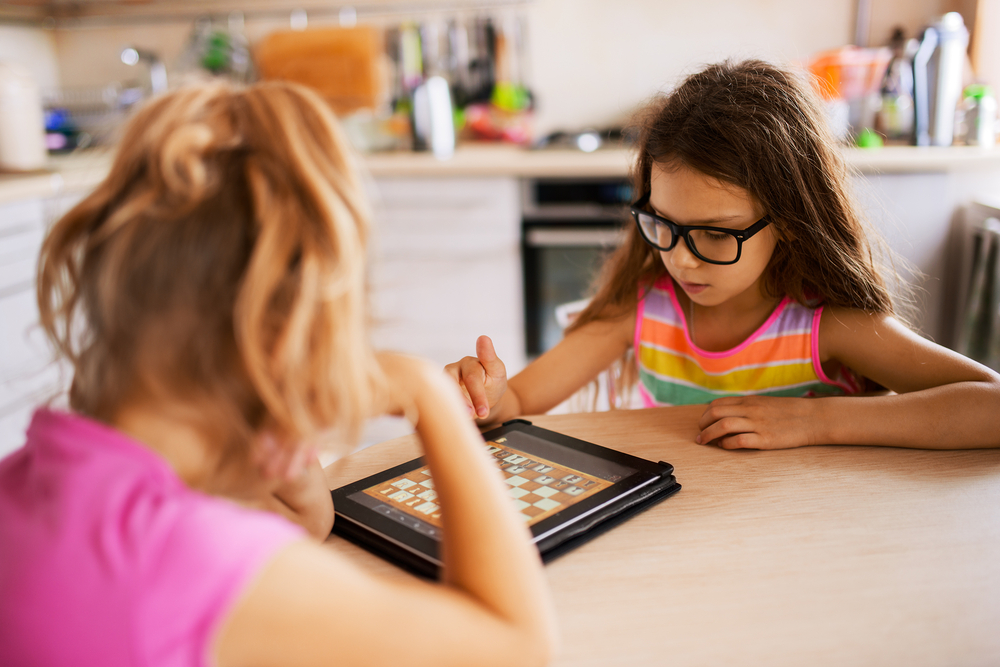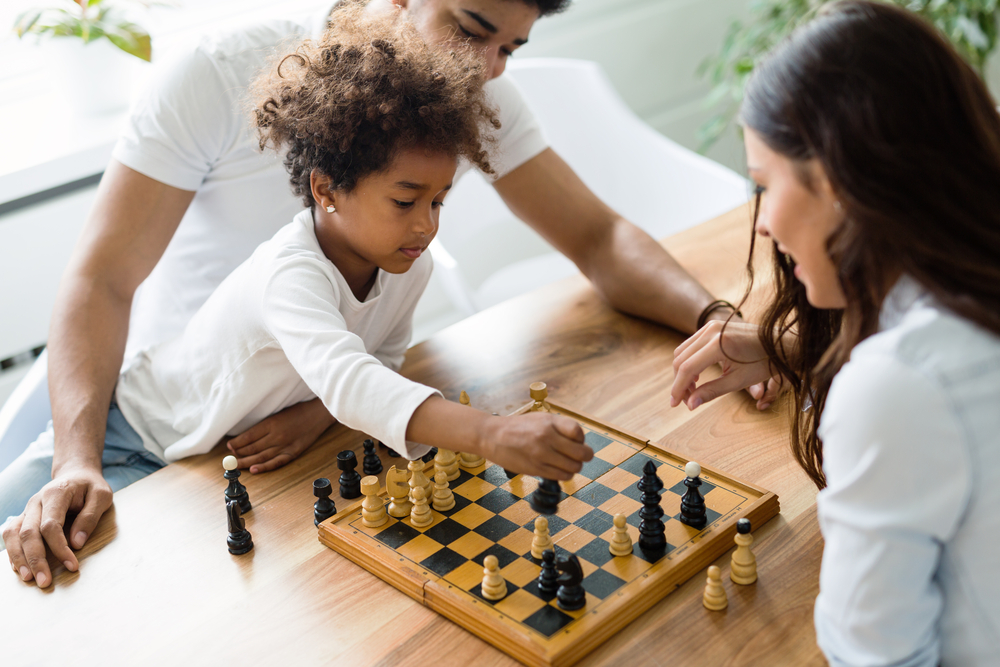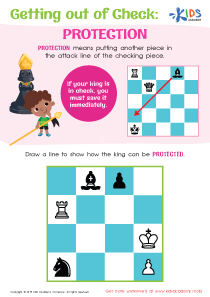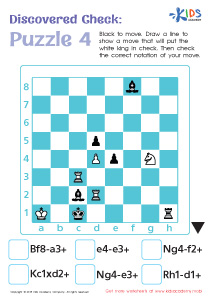Cognitive Development Chess Worksheets for Ages 3-7
5 filtered results
-
From - To
Enhance your child's cognitive development with our engaging Chess Worksheets designed specifically for ages 3-7! These printable resources are crafted to promote critical thinking, problem-solving skills, and pattern recognition through enjoyable chess-related activities. With colorful illustrations and age-appropriate challenges, young learners will develop essential cognitive skills while having fun. Perfect for classrooms or home learning, our worksheets encourage strategic thinking and improve focus, all while introducing the timeless game of chess. Explore a world of imagination and intellect as your child engages with these thoughtfully designed worksheets. Get started on their journey to becoming a strategic thinker today!
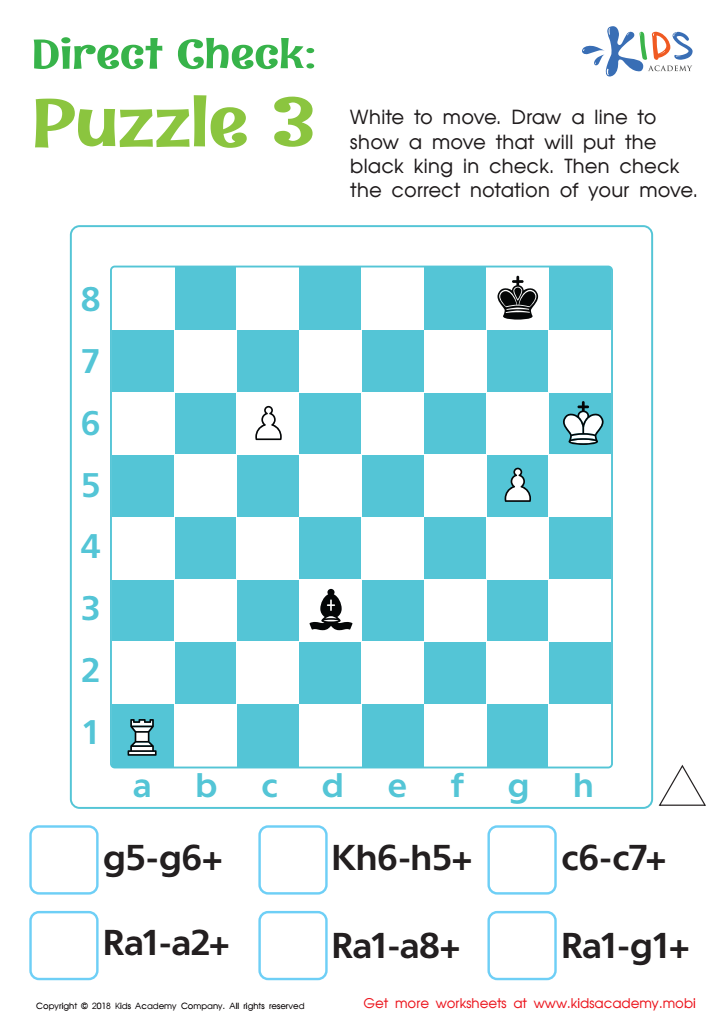

Direct Check: Puzzle 3 Worksheet
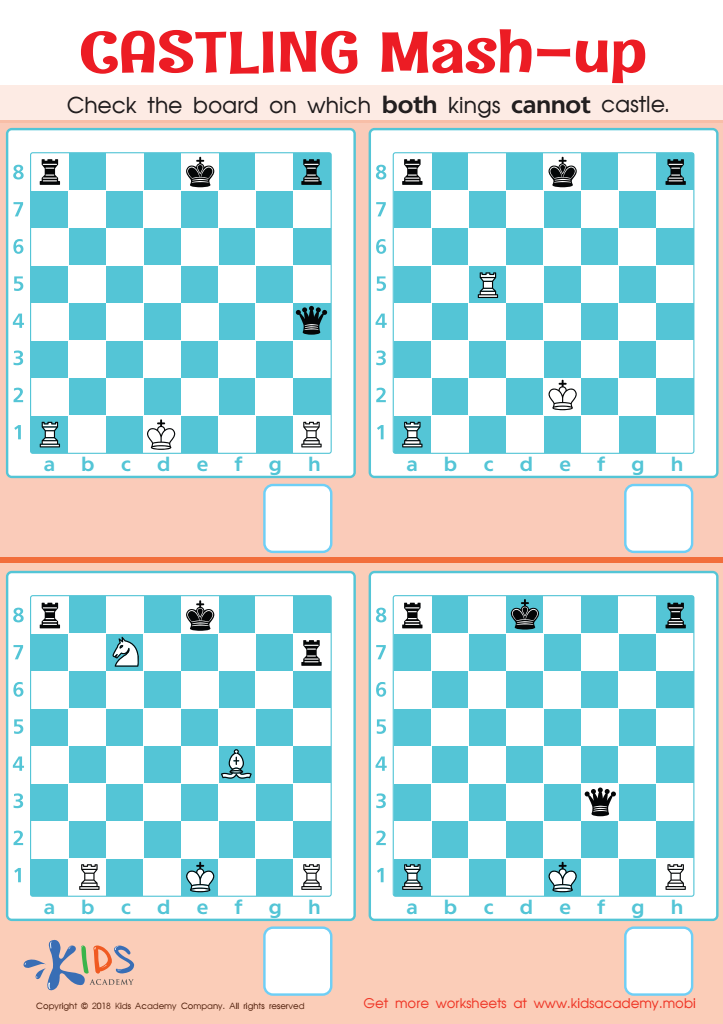

Castling Mash–up Worksheet
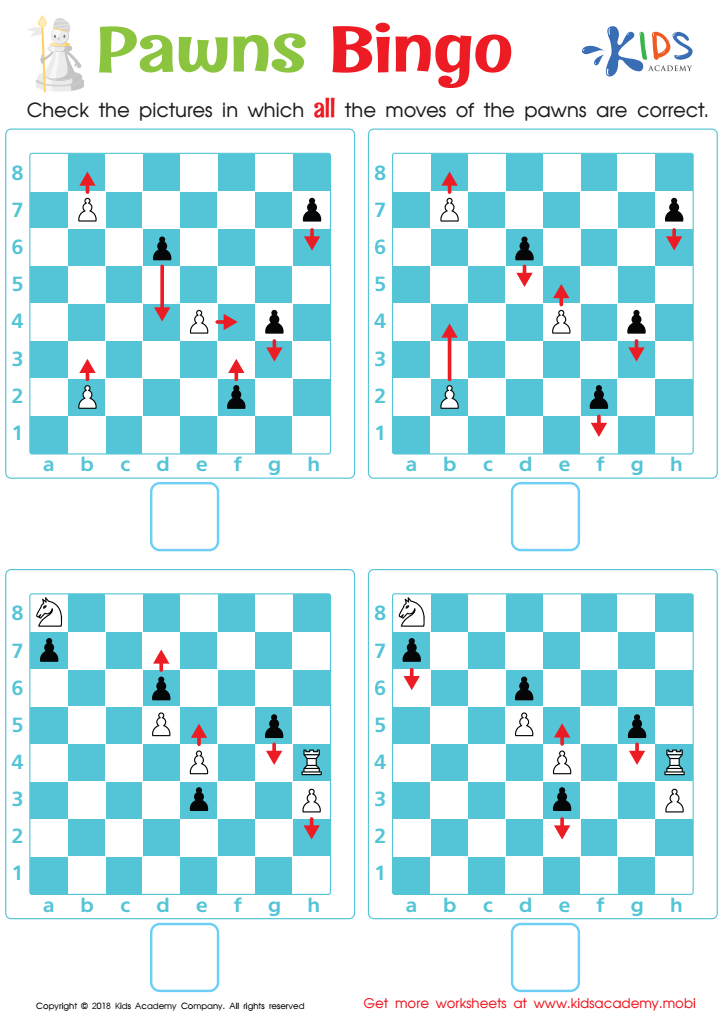

Pawns Bingo Worksheet
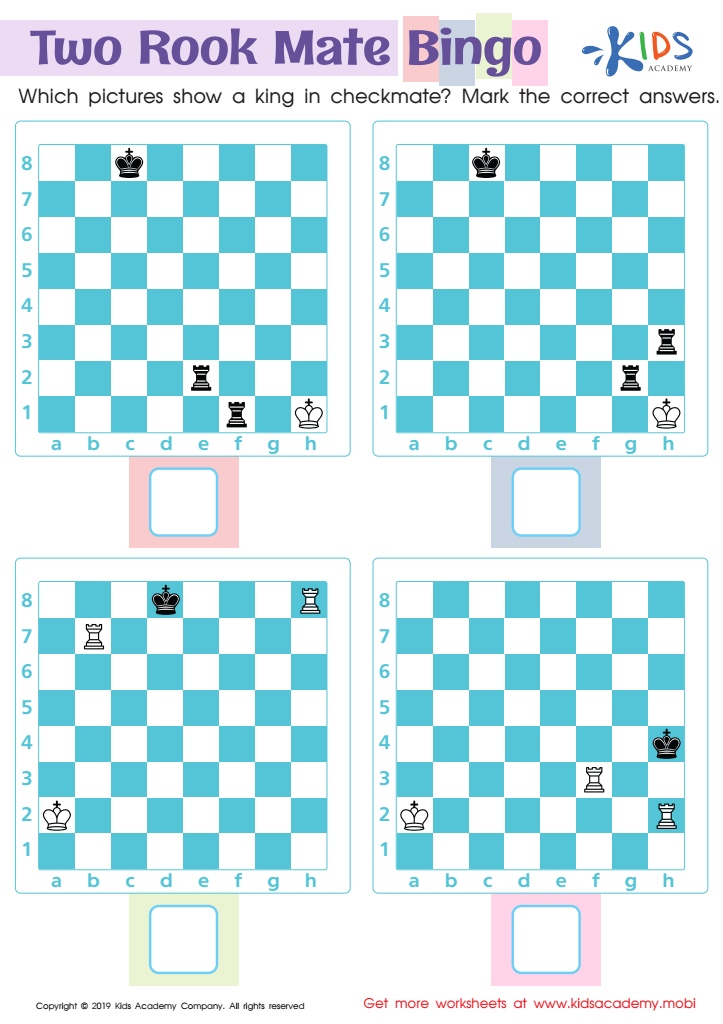

Two Rook Bingo Worksheet
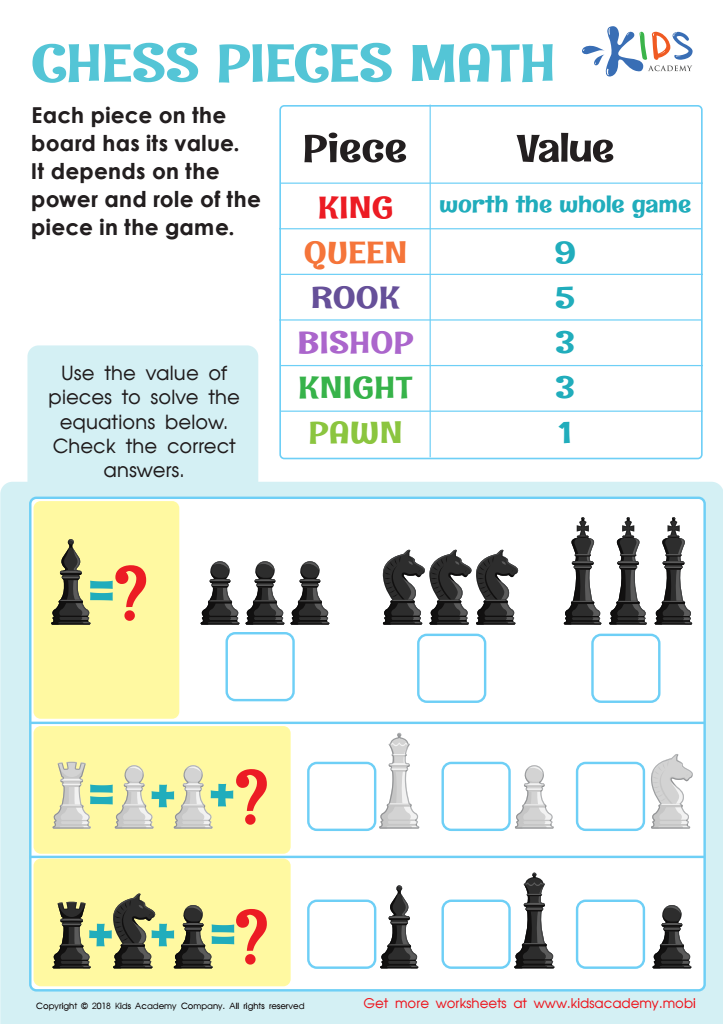

Chess Pieces Math Worksheet
Cognitive Development Chess for ages 3-7 is a powerful tool for enhancing early childhood learning. At this age, children's brains undergo rapid development, with critical skills such as problem-solving, critical thinking, and spatial awareness forming the foundation for future academic success. Introducing chess at this young age fosters these skills by engaging kids in strategic thinking, pattern recognition, and mathematical reasoning.
Parents and teachers should care about this because chess encourages patience, focus, and self-control—qualities essential not just for academic achievement but for lifelong learning. The game also helps nurture social skills as children learn to take turns, follow rules, and engage with peers, promoting positive interactions and conflict resolution.
Moreover, chess can boost a child's self-esteem and confidence as they master the game’s complexities. Research indicates that children who engage in chess often demonstrate improved performance in subjects like math and reading. By incorporating Cognitive Development Chess into their routine, educators and parents create a strong framework for critical life skills while making learning enjoyable. Ultimately, investing in chess now can lead to a generation of thoughtfully engaged problem solvers equipped to navigate the complexities of the world around them.
 Assign to My Students
Assign to My Students





